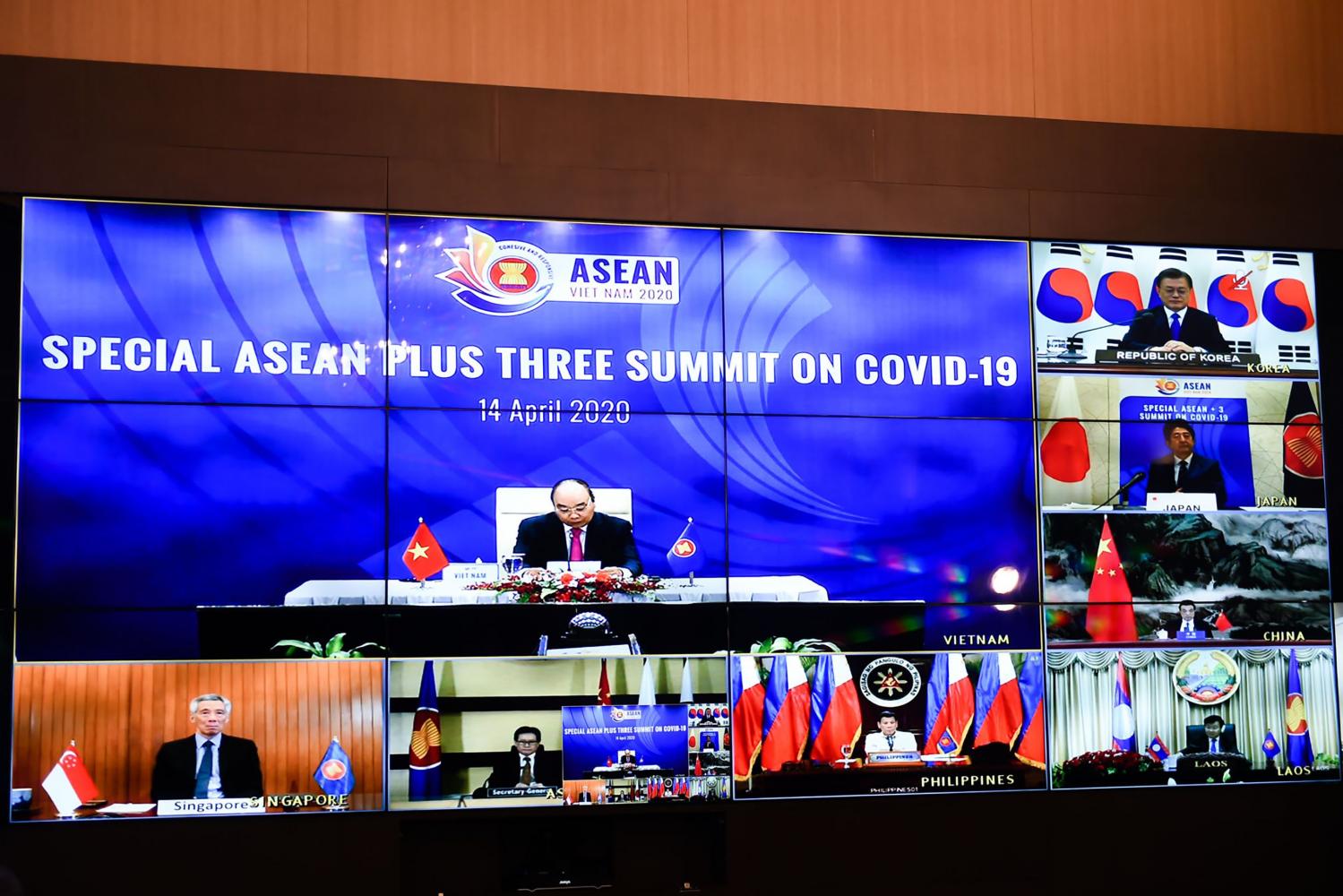
Covid-19 has put the Association of Southeast Asian Nations (Asean) to the test. Singapore experiences a second wave of infection, and some countries remain as virus hotspots amid concerns that they may have turned into the next Covid-19 epicentre. This issue was picked up extensively within the diplomatic community across the region. A key takeaway from the spread of Covid-19 is the need for member countries to solidify intra-Asean initiatives by strengthening result-based diplomacy. Member states should pick up this momentum to bring Asean closer to citizens.
We learned in history that Asean's resilience could guard the region against the major crises. Throughout world's major turbulent events, such as the outflow of the Indochina refugee crisis in 1979-1980, Asian Financial Crisis in 1997-98 and natural disasters (2004 Tsunami and 2008 Cyclone Nargis), Asean survives -- which some refer as "the Asean Miracle".
With the rise of the "my country first" sentiment, result-based diplomacy holds Asean accountable in times of crisis. Asean is a "public" intergovernmental organisation -- the institution is funded from member state contribution, which comes from their respective citizens' tax money. Under the 1994 Agreement for the Establishment of a Fund for Asean, upon becoming an Asean member, each country should pay the initial contribution of about 32 million baht (US$1 million).
For what the Southeast Asian people have paid, they deserve more than "ceremonial diplomacy". Especially, when there is a pressing need in times like this to take one step forward to reach the impact, projecting down-to-earth regionalism. The Covid-19 outbreak is an awakening for Asean to pause from the restless thousands of physical meetings annually held.
Diplomatic efforts to combat coronavirus have stepped up as foreign ministers met virtually during the special video conference of the Asean Coordinating Council on April 9. Other two virtual meetings held on April 14 were part of an online Asean Summit and followed by a special Asean Plus Three (APT) Summit. The most concrete outcome of these meetings is the agreement to set up a "Covid-19 Asean Response Fund for public health emergencies, which would be reallocated from existing Asean+1 and APT cooperation funds, with possible additional support from Asean's external partners," a special APT joint statement said.
While the initial proposal was to re-allocate roughly around 10% of the Asean Development Fund, APT Cooperation Fund, and Bilateral Cooperation Fund with China, Japan, and South Korea, it was not adequately clear post-summit if it is still the case. While South Korean President Moon Jae-in said that his country will secure additional funding from the Asean-RoK, ADB, and APT funds, Premier Li Keqiang of China only suggested to establish an APT reserve of essential medical supplies.
Meanwhile, Asean member states might have different approaches to combat the pandemic but the region has been integrated more than ever. Thousands have gathered in Indonesia and Malaysia for communal prayers, while numerous workers are commuting between Malaysia's Johor and Singapore, or Malaysia's Sarawak and West Kalimantan in Indonesia. With such a policy environment, Asean should solidify actions, making the crisis as a catalyst to move forward. There are opportunities to advocate data coordination on migration and repatriation to protect Asean citizens together.
Along with the migration issue, Asean's cross-border food supply chain should be regionally addressed. For instance, Vietnam, the world's third-largest rice exporter has imposed new export restrictions that may directly affect the food supply of surrounding countries. In the long run, experts have warned that such a protectionist policy might trigger a tit-for-tat reaction. Therefore, Asean needs to safeguard food supply as a key sector that must be supported by fewer barriers around borders. Commitment to maintaining an open food supply chain is very much needed during this time of global health insecurity.
Today, Asean member states' contribution has doubled since 1994, with annual contributions amounting to about 648 million baht ($20 million). This number is above the contribution to for Asean is to launch a new project. As commitments have doubled, impactful policies should have followed. But what we see today remains as a 'kitchen work' to be done.
Perhaps, while the factual commitments are still unclear, Asean could start by consolidating a strong political will to safeguard policy rationality, suitability, and acceptance to existing weaknesses in each member country. This is key to ensuring policy delivery. An inter-pillar task force within the Secretariat, headed by the Secretary-General, could be summoned to explore the required needs of the medical workforce, experts, medical technology, hospitals and testing labs in each Asean country.
For example, among others, the World Health Organization's latest available data from 2018 showed that Cambodia, Indonesia, Myanmar, Laos and Thailand have less than one physician per 1,000 population, while Cambodia, Myanmar, and Laos have less than one nurse and midwife per 1,000 population.
Not to mention that in some countries, this rate might have been reduced as coronavirus brought deactivation, hospitalisation and deaths to doctors and nurses. As of April 27, the Indonesian Medical Association has reported the death of 25 doctors in the country. At the Kariadi Hospital in Semarang, 46 health workers have been isolated due after a patient was dishonest about travel history.
Treating data with honesty started by establishing and enabling a science-based environment on policy and information-sharing grounded on openness, transparency and filled with an endless culture of learning that will ensure a policy will not only be "sent" but also "delivered" to the people.
Dio Herdiawan Tobing is the founder and associate fellow of the Centre for Politics and Transnationalism at Policylab, Indonesia and Prayoga Permana is a PhD candidate in International Political Economy at the University of Groningen, the Netherlands.
